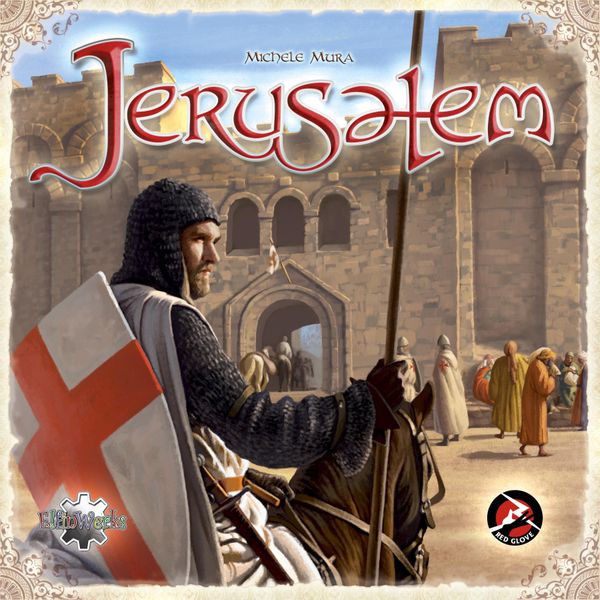Jerusalem (2010) Board Game
Jerusalem is a board game that was released in 2010 and is designed by Guido Favaro and Eva Villa. The game is set in medieval times and focuses on area majority, auction/bidding, open drafting, and worker placement mechanics. Players take on the roles of influential city leaders in Jerusalem, competing to gain control of various districts and buildings in the city.
Game Components of Jerusalem
How To Setup Jerusalem
Setting up Jerusalem involves several steps. Players start by placing their followers into the three main resource gathering locations. Cards are arranged in the top market and favors area, while tiles representing parables are laid out along the bottom. The Sanhedrin tracker acts as the game clock and is placed on the right side. The 12 Apostles and the starting layout for the Last Supper are positioned in the middle. Each player sets up their own player board with a Warehouse area for storing resources and followers.
Gameplay Mechanics and Game Objective
Player Experience
In Jerusalem: Anno Domini, players are immersed in a intricate game of resource management and strategic placement. The game is characterized by its multi-use cards, deck-building mechanics, and the challenging area-control scoring around the Last Supper. Players must balance their warehouse space, manage resources, and strategically place followers and apostles to maximize their score. The game’s theme, centered around the Last Supper and the events leading up to it, adds a unique layer of depth and engagement.
Pros
Cons
Personal Thoughts on Jerusalem
Jerusalem: Anno Domini is a game tailored for experienced board game enthusiasts who enjoy complex strategy and resource management. The unique theme and intricate mechanics make it stand out, but it may not be the best fit for casual players due to its complexity and time requirement. It is ideal for players who appreciate deep strategic games and are willing to invest the time to learn and master its mechanics.
We are supported by our audience. When you purchase through links on our site, we may earn an affiliate commission, at no extra cost for you. Learn more.

